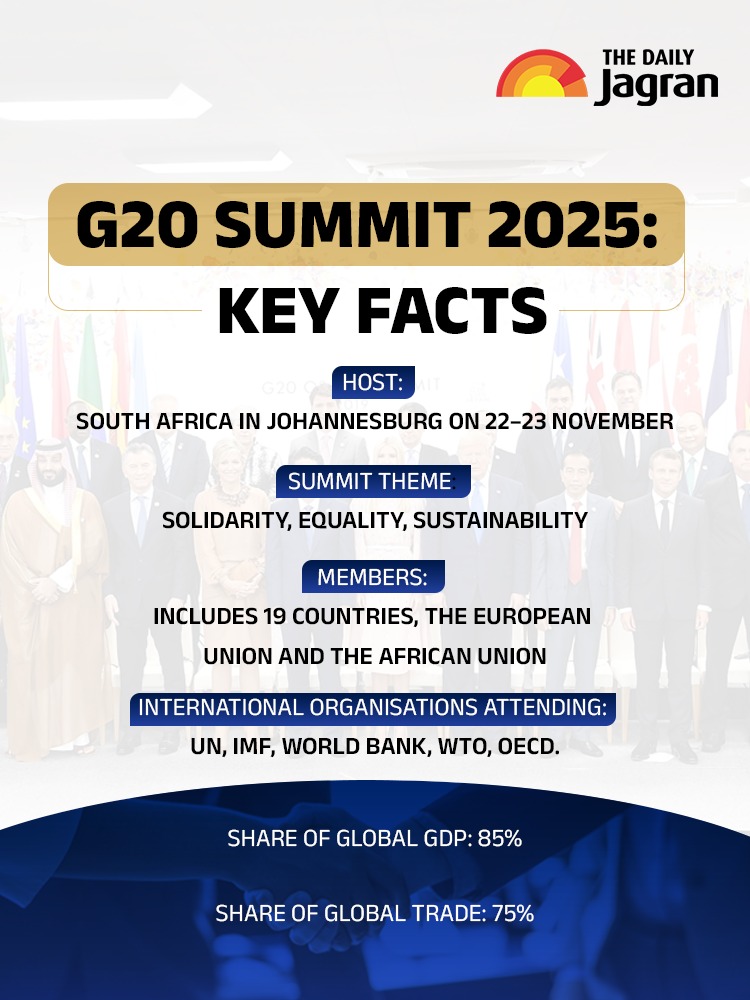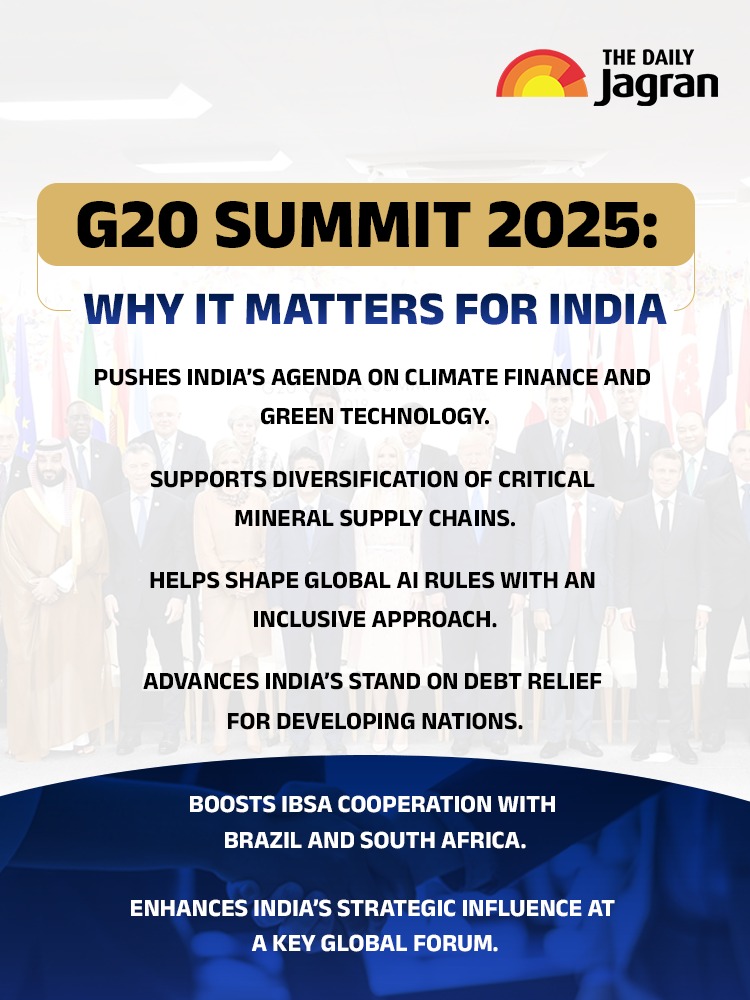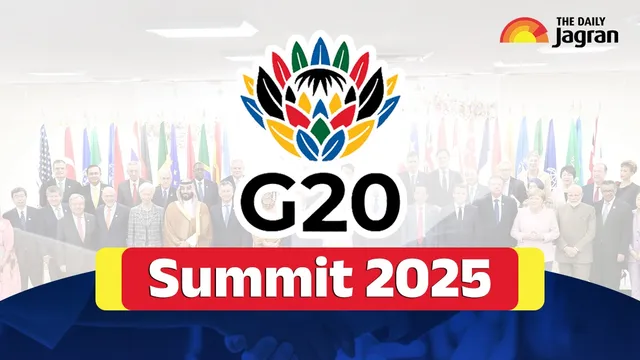- By Supratik Das
- Fri, 21 Nov 2025 12:14 PM (IST)
- Source:JND
G20 Summit 2025 South Africa: The G20 convened in Johannesburg on Friday for a landmark edition of the forum, marking the first time an African nation has taken charge of the world’s premier economic coordination platform. South Africa, which assumed the presidency last December, is steering discussions under “Solidarity, Equality, Sustainability,” a theme that reflects the growing expectations placed on emerging economies.
Leaders and senior officials from across the G20 began arriving at the Nasrec Expo Centre early in the day for two days of talks dominated by economic resilience, climate transition, and the growing debt pressure on developing nations.
Forum Born From Crisis
The G20 was created in 1999 after the Asian Financial Crisis exposed deep gaps in global coordination. Its original format brought together finance ministers and central bank governors from major economies. The 2008 financial crisis transformed the group into a Leaders’ Summit, giving presidents and prime ministers a direct role in shaping global financial and economic responses.
The forum today represents the bulk of global economic activity, roughly 85% of GDP, 75% of trade, and nearly two-thirds of the world’s population.

Who Makes Up The G20
The G20 consists of 19 countries plus the European Union and the African Union, which became a full member in 2023.
Members include Argentina, Australia, Brazil, Canada, China, France, Germany, India, Indonesia, Italy, Japan, South Korea, Mexico, Russia, Saudi Arabia, South Africa, Türkiye, the United Kingdom, and the United States. A number of international institutions, including the UN, IMF, World Bank, WTO, and OECD, also participate.
South Africa is hosting most member states this year at the leaders’ level, although the United States is not taking part in formal sessions this year. A senior official from its embassy is present only for the handover ceremony. Delegations from India, China, Brazil, Japan, Saudi Arabia, and the EU are among those participating fully in the negotiations.
ALSO READ: Major Snub To G20? Why Trump And His Team Are Boycotting South Africa Event | Know Reasons
Why This Summit Matters For India
With four successive summits of the G20 now being held in the Global South, the emerging economies are attempting to push the transformation of global governance. Their share of global GDP has almost doubled since 2000, creating expectations that their voices now carry greater weight.
PM Modi will likely emphasise committing to climate finance, technology access, secure critical mineral supply chains, and an inclusive global framework on artificial intelligence-all areas where developing nations want stronger commitments from wealthier economies.
• Continuity of India's 2023 agenda: New Delhi wants sustained momentum on digital public infrastructure, climate finance, and reform of global institutions.
• Debt Relief and Financial Restructuring: India has called for fairer debt treatment frameworks, considering the growing repayment burdens among low-income countries.
• Climate Finance and Technology Access: India is likely to push for funds, affordable green tech, and a balanced approach by which development and decarbonisation proceed together.
• Critical minerals security: Diversification of the mineral supply chain is growing as a strategic priority given India's need to reduce dependency on single-source imports for clean energy and digital infrastructure.
• AI governance with equitable access: New Delhi is pushing for a global framework that would avoid biased, high-income-centric standards and ensure inclusive benefits of AI systems.
• IBSA Revival: India sees the India-Brazil-South Africa grouping as a means for shoring up democratic multilateralism and balancing other geopolitical blocs.
Thus, for India, the Johannesburg summit is more than a diplomatic engagement. It is a chance to convert its expanded influence into concrete decisions that shape the future of economic governance, from energy systems and financial rules to digital frameworks and developmental equity.


